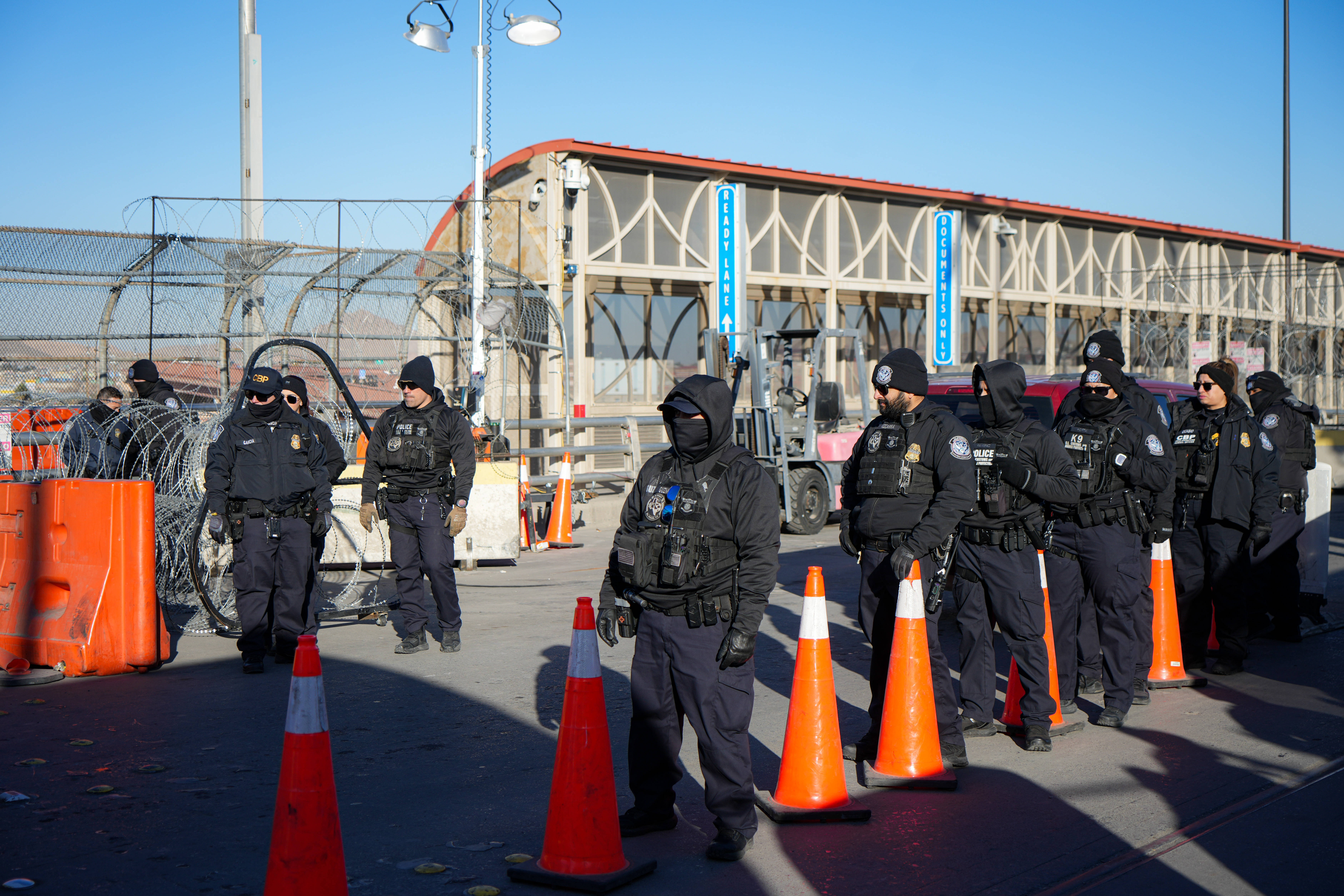Trump and Mexico
Mexico in Shock: Trump is Back

Members of the Mexican National Guard and the US border police monitored the ‘Paso del Norte’ border crossing.
© picture alliance / SIPA | Alice MORITZ"On average, one feels quite low and what to do? One does not know." This quote by Wilhelm Busch aptly describes the reaction in Mexico to the inauguration of President Donald Trump. It was, of course, foreseeable that a new Trump administration would pose serious challenges for Mexico. However, the sheer force of the initial executive orders, which affected Mexico more than any other country in the world, has sent shockwaves through the nation. The pressing question now is how the country will cope with this new reality.
Trump’s policies have created immediate challenges: the closure of the border to migrants, the deportation of undocumented immigrants, and the designation of Mexican drug cartels as terrorist organizations. Looming in the background are threats of a 25% tariff on all imports and Trump’s demand to reassess the USMCA (United States-Mexico-Canada Agreement) before its scheduled review in 2026. Whether the agreement will be extended beyond its current term ending in 2036 is uncertain.
Tragic Consequences of New Border Policies
Tragic scenes have unfolded at the border since Trump’s return to office. Migrants with confirmed asylum hearing dates were informed that their appointments had been canceled without rescheduling. Thousands are now stranded at the border, unsure of their next steps. In addition, there are those who have now been deported from the USA, around 5,000 since Trump took office.
The Mexican federal government has set up nine reception centers and is taking immediate action without passing the problem on to the states and municipalities alone. Efforts are underway to assist deported Mexicans with reintegration, but the fate of foreign migrants remains unclear. While some may be granted permanent residency, the sheer volume of migrants expected will likely lead to many being repatriated. Meanwhile, illegal border crossings have become riskier and more difficult, prompting smugglers—often in collaboration with drug cartels—to increase their fees.
Mexico Caught Between Economic Pressure and a Migration Crisis
Mexico faces the monumental task of addressing these interconnected challenges decisively and effectively. The country has little room to maneuver, given Trump’s looming tariff threats. Over 75% of Mexico’s exports go to the United States, and the North American free trade zone has fueled an industrial boom that keeps the economy afloat alongside remittances from Mexican migrants in the U.S.
Under former President López Obrador, Mexico’s economy stagnated, and with the potential erosion of its two strongest economic pillars, a severe recession looms. Furthermore, López Obrador abandoned fiscal discipline in the final stretch of his presidency, leaving a budget deficit exceeding 6% of GDP in 2024. This leaves President Sheinbaum with little financial flexibility to address the crisis.
In response, the Mexican government is hastily establishing communication channels with the Trump administration. So far, it has rejected a revival of the "Remain in Mexico" program from Trump’s first term, which required asylum seekers to wait in Mexico while their cases were processed. However, this stance may not hold. Mexico is also likely to face pressure to tighten control of its southern border, potentially leading to a cascade of stricter border controls reaching as far south as Panama.
A Shift in Security Policy
Another critical area is security policy, particularly the fight against drug cartels. Designating cartels as terrorist organizations could have severe consequences for financial transactions between the U.S. and Mexico, potentially causing significant harm to Mexico’s economy. There is even the threat of U.S. military action on Mexican soil. Mexico has emphasized its commitment to defending its sovereignty. In addition, the Sheinbaum administration has already shifted its security policy. In its first three months, the government has taken a much tougher stance against cartels and drug labs than López Obrador’s administration. In addition to increased police operations, a comprehensive reform of security policy is needed to address systemic issues in prosecution, the judiciary, and police training. Progress in these areas has been limited, and the nationwide election of judges by popular vote this year is likely to complicate matters further.
Mexico faces challenging times ahead. Confronting Trump head-on is not a realistic option, and the country will have to adapt to his aggressive policies, enduring a prolonged period of uncertainty. However, there is a small silver lining: the intense pressure from the U.S. might give President Sheinbaum the political cover to quietly undo some of the counterproductive policies of her still-popular predecessor. Early signs of this shift are evident in security policy and could, over time, extend to economic and fiscal policies. These might include reforms to the deficit-ridden state oil company PEMEX and curtailing clientelist cash transfers to various groups. Sometimes, a crisis can also serve as an opportunity to implement necessary changes. One can only hope that Mexico seizes this moment to emerge stronger.
